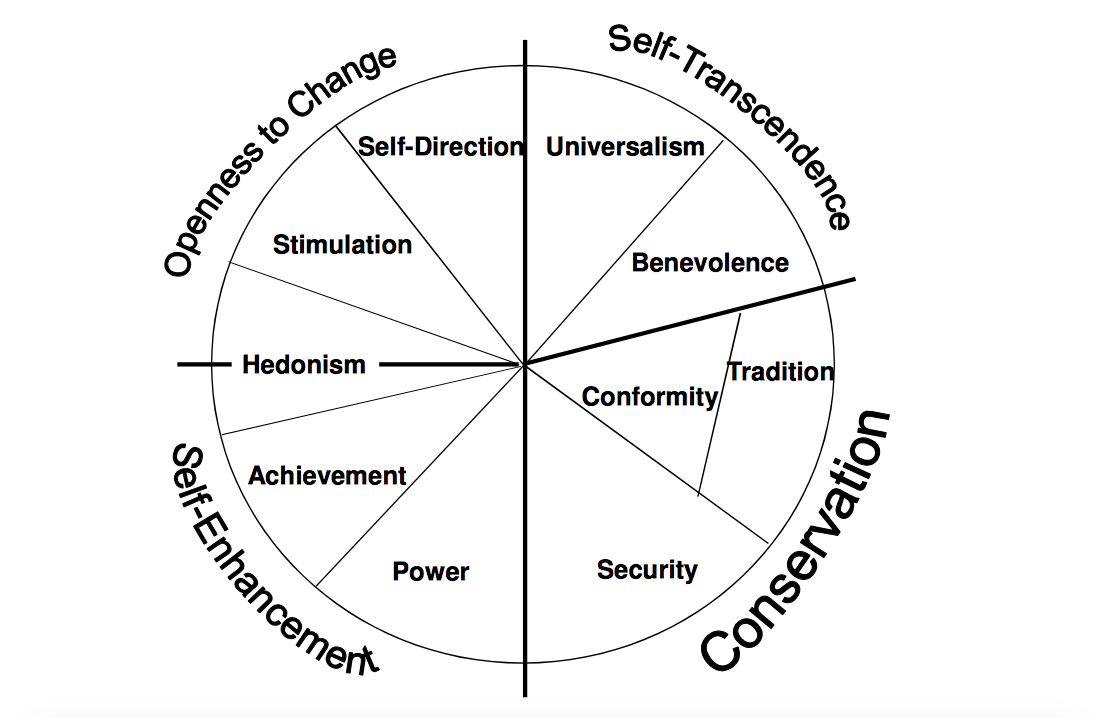The theory of basic values
We have seen in a previous post how social psychologist Jonathan Haidt attempts to classify values into 5 major categories: Care, Fairness, Liberty, Authority and Sanctity.
Shalom Schwartz from the University of Jerusalem has later on developed the theory of basic values, by which he identifies 10 clusters of values:
Self-Direction – Defining goal: independent thought and action–choosing, creating, exploring.
Stimulation – Defining goal: excitement, novelty, and challenge in life.
Hedonism – Defining goal: pleasure or sensuous gratification for oneself.
Achievement – Defining goal: personal success through demonstrating competence according to social standards.
Power – Defining goal: social status and prestige, control or dominance over people and resources.
Security – Defining goal: safety, harmony, and stability of society, of relationships, and of self.
Conformity – Defining goal: restraint of actions, inclinations, and impulses likely to upset or harm others and violate social expectations or norms.
Tradition – Defining goal: respect, commitment, and acceptance of the customs and ideas that one’s culture or religion provides.
Benevolence – Defining goal: preserving and enhancing the welfare of those with whom one is in frequent personal contact (the ‘in-group’).
Universalism – Defining goal: understanding, appreciation, tolerance, and protection for the welfare of all people and for nature.
These values can be mapped out according to how they relate to one another as neighbors or opposites:
This framework has been extensively used in order to identify the frames by which a target group can effectively be reached by campaigns.
Two institutions have done extensive work on how this: The Public Interest Research Center (UK) and the Frameworks Institute (USA). Ttheir websites should be on whatever is the equivalent in any campaigner’s bookmarks of a bedside table.



Comments are closed.